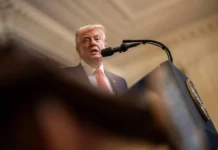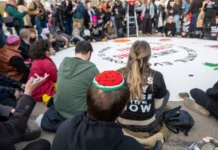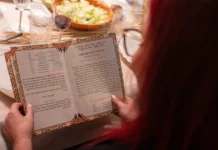We Are Jews Again by author and activist Yuli Kosharovsky has been recently translated from Russian into English. It revolves around Jewish activism in the Soviet Union, and is a detailed account of the stories of Soviet Jews who lived under this regime, who fought to keep Judaism alive in a society that shunned religion.
Kosharovsky, who was born in Sverdlovsk, in the Ural region in central Russia, was a lifelong Jewish activist and one of the most well-known refuseniks during the Soviet era. The term, “refusenik,” was a general term for people in the Soviet Union who were denied permission to emigrate; often times, refuseniks were Soviet Jews who were not allowed to immigrate to Israel. The Soviet Union’s ban on Jewish immigration to Israel was lifted in 1971, which was what led to the first wave of Soviet-Jewish immigration to Israel throughout the 1970s.

Kosharovsky was a very active leader in the Jewish refusenik movement, and for many years, was an activist that helped cultivate Jewish identity in a regime that aggressively rejected religion. He also made a great contribution to the Jewish education system in Russia as he was a leading Hebrew teacher in a country where it was nearly impossible to learn Hebrew. Kosharovsky was also a historian and a broadcasting manager. After 18 years of living in refusal, Kosharovsky was finally allowed to move to Israel, where he lived until his death in April 2014, at the age of 72.
We Are Jews Again was originally published in Russian in 2008 as an “authoritative four-volume history of the Jewish movement in the Soviet Union.” This insider’s story of Soviet-Jewish activism in the post-Stalin era is now available from Syracuse University Press in a much more condensed edition in English, translated by Stefani Hoffman, and is made more accessible to many people.
The book is essentially a chronicle of the various voices of the Soviet-Jewish movement. It talks about the history of Soviet Jews, and includes a lot of transcribed interviews that talk about the first-hand experiences of Jewish activists in this regime.
We Are Jews Again includes photographs of former refuseniks and of the Jewish activists that pushed to lift the ban against Jewish immigration to Israel. Many of the photos come from the collection of American-Israeli activist Enid Wurtman, with whom Kosharovsky worked with to gather a large collection of interviews, journals, reports and bulletins from North American, English and Israeli organizations that helped support Soviet Jews.
Kosharovsky’s book also touches on the constant identity struggle that many Jews had in the Soviet Union, as Russian-speaking Jews were subject to horrible anti-Semitism, but yet they often identified more with Russian culture than with their Jewish identity. One reason for this phenomenon is that after the Russian Revolution, and the Bolsheviks rose to power, Jews were not given access to Jewish literature and Torah, and instead were immersed in Russian culture.
As the decades went on, Russian-speaking Jews became increasingly less religious due to the harsh circumstances in the Soviet Union, and when they were finally allowed to emigrate to Israel (and later on, to North America), they found themselves surrounded by Jews who were completely different from them.
“A network of Jewish activists began to demand the right to emigrate to Israel, eventually becoming the best organized and most successful movement among the various streams of dissent,” explained Joshua Rubenstein, who wrote the foreword for Kosharovksy’s book.
“By the time Leonid Brezhnev died in November 1982, the regime, in spite of its repressive instincts, had permitted more than a quarter million Jews to leave,” said Rubenstein.
For decades, this community of Jewish activists in the Soviet Union fought for the freedom to teach their children about Judaism and Jewish history, as well as to learn Hebrew and immigrate to Israel. Kosharovsky conducted dozens of interviews with people who were former refuseniks and with famous Soviet-Jewish activists, and compiled their stories into this book that gives a very vibrant and personal view into the world of people who fought so hard to keep Judaism alive. He also talks about the incredible amount of support that Soviet Jews received from other Jewish organizations around the world, as well as gave details about the political and historical climate during the time this issue was at its peak.
The history of Soviet Jews is one that is often overlooked and not much is known about the activists who fought for their right to be Jewish, and Kosharovksy, along with many other writers and historians, has given a voice to a community of people who did not receive nearly the amount of recognition that they deserve.

























